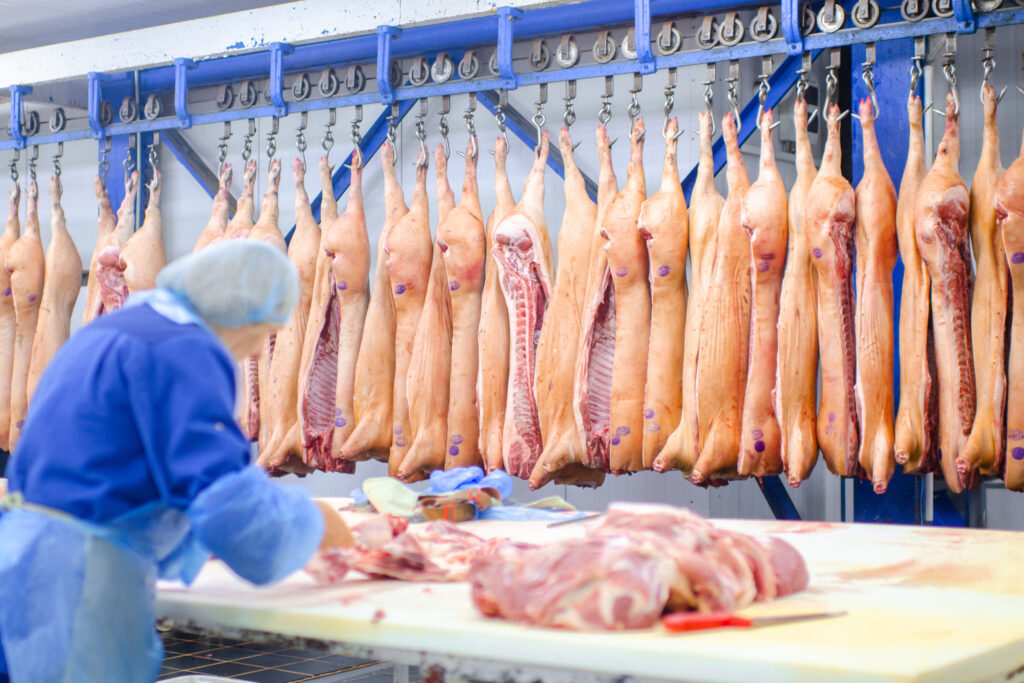The Association of Independent Meat Suppliers (AIMS) has refuted suggestions by the chair of the Food Standards Agency (FSA) that the current discount system for meat inspection charges is a ‘subsidy’.
AIMS and others within the meat sector are fighting the FSA’s plans to remove of the current meat inspection discount regime, which it said could ‘devastate over half of the UK’s meat industry, jeopardising a vital sector of the national economy’.
Dr Jason Aldiss, head of external affairs at AIMS, said FSA chair Professor Susan Jebb’s portrayal of the discount system as a subsidy was ‘inaccurate and detrimental’ and ‘demonstrates a profound misunderstanding of the regulatory framework’.
“The current discounts are essential adjustments designed to counterbalance an excessively bureaucratic and duplicative charging regime that imposes exorbitant costs on the meat industry,” he said.
He added that the current FSA charges to the UK meat sector are among the highest in the world and, ‘in effect are a state sponsored trade barrier placing domestic producers at a significant disadvantage in international markets’.
In light of these challenges, AIMS is advocating the adoption of a headage-based charging system. This approach would align with international standards, ensuring a fairer and more transparent method of cost assessment that reflects the actual scale of operations, thereby promoting competitiveness and sustainability within the industry, Dr Aldiss said.
He also claimed that Professor Jebb’s assertion that meat inspection is a ‘vital consumer protective function’ is increasingly contested by international experts.
“The European Food Safety Authority (EFSA) has questioned the effectiveness of traditional meat inspection methods, suggesting that certain practices may not effectively detect modern biological hazards and could, in some cases, be detrimental to food safety. This raises critical questions about the allocation of resources and the necessity of current inspection protocols,” he said.
“Furthermore, Professor Jebb’s claim that meat inspection charges constitute only a minor cost to slaughter plants reflects a lack of awareness of industry economics.
“While these charges may represent a small fraction of total turnover, they have a substantial impact on net margins, particularly for small and medium-sized enterprises. The financial burden imposed by these fees threatens the viability of numerous businesses, undermining the broader agricultural economy”.
AIMs is calling on the FSA to adopt a supportive and collaborative approach, ensuring that regulations are impartial, evidence-based, proportionate, transparent, and honest. It is also urging government ministers to intervene, to ensure that the FSA operates as a ‘fair and effective regulator, upholding the principles of good governance, and supporting the sustainability of the UK’s meat sector’.
FSA view
Writing on the Pig World website in October, as the FSA sought industry views on changes to charges, James Cooper, FSA deputy director of food policy said:
“HM Treasury requires that the cost of regulatory services provided by Government departments should be recovered in full. This includes charging abattoirs for the inspections our vets and meat inspectors carry out.
“Over the years, the FSA has been able to offer discounts to the meat industry because of the value this work provides for the taxpayer. Many businesses don’t pay the full rate, with small abattoirs paying the least for these essential official controls.
“Our charge rates for the meat industry though are set to rise. Inflation, which is being felt across all sectors, must inevitably be reflected in the cost of these official controls. The costs of recruiting and retaining vets have also increased as we grapple with a global shortage of vets. We have also been moving towards reducing these discounts to align with HM Treasury rules.
“The question is how much of the cost of official controls should be met by the taxpayer and how much should the industry pay.”




